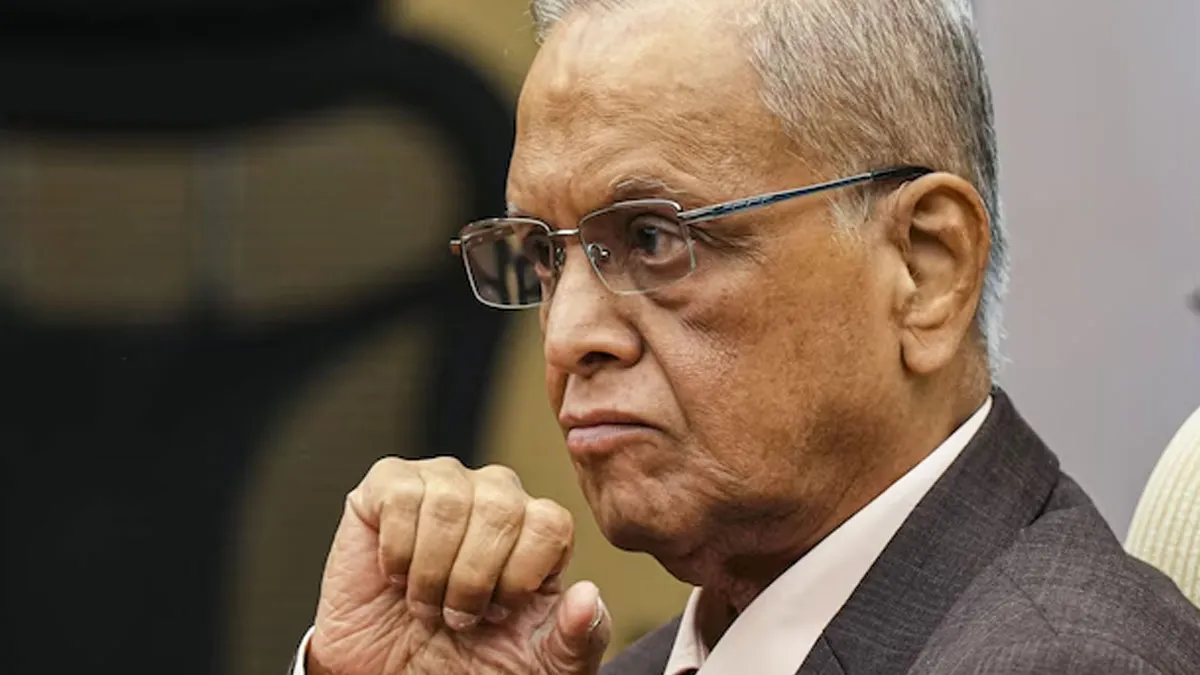
In a recent statement, Infosys co-founder Narayana Murthy reignited the debate over work culture by critiquing India’s transition to a five-day workweek. Advocating for a return to a more intensive schedule, Murthy emphasized the importance of hard work in propelling India towards progress. His remarks have sparked widespread discussion about the balance between productivity and well-being in today’s workforce.
Table of Content:-
The Call for Hard Work and Sacrifice
At the CNBC Global Leadership Summit, Murthy expressed disappointment with India’s shift from a six-day to a five-day workweek, a change implemented in 1986. Stressing the need for sacrifice over relaxation, he remarked, “We need to work hard in this country. There is no substitute for hard work.” He cited examples of post-World War II Germany and Japan, both of which rebuilt their nations through relentless dedication. According to Murthy, India must adopt a similar ethos to achieve significant economic and social milestones.
Murthy also pointed to Prime Minister Narendra Modi’s reputed 100-hour workweeks as an example of commitment, urging others to match that level of effort. Reflecting on his own career, he shared details of his demanding schedule—working up to 14 hours a day, nearly six and a half days a week. For Murthy, this rigorous routine is a badge of honour, underscoring the belief that success stems from relentless effort.

The Historical Evolution of the Workweek
The concept of a structured workweek has undergone significant transformations over time. While ancient societies like the Babylonians practised seven-day workweeks, modern notions of labour rights began to take shape with the Fair Labor Standards Act of 1938. This U.S. legislation established the eight-hour day and the 40-hour workweek, aiming to balance productivity with leisure. Later, industrial pioneers like Henry Ford championed the five-day workweek, recognizing its economic benefits. Ford’s rationale was clear: rested workers were better consumers, spurring economic activity through recreation and leisure spending.
Also Read: Shubman Gill Out Of Perth Test Due To Thumb Fracture: Key Facts About Recovery And Care
However, as workplaces evolve, debates over the optimal workweek persist. Many argue that the five-day model may now be as outdated as the seven-day workweek of old, with increasing attention to flexibility and well-being.
Modern Perspectives on Work-Life Balance
While Murthy champions long work hours, proponents of shorter workweeks highlight the physical, emotional, and environmental benefits of reduced schedules. Trials of four-day workweeks, conducted by companies such as New Zealand’s Perpetual Guardian, have shown promising results. Employees reported higher productivity, better attendance, and improved creativity, with no significant decline in job performance. Such experiments suggest that a balanced approach to work can enhance both employee satisfaction and organizational outcomes.
Also Read: Delhi Slumps Under Poor Air Quality; Schools Shift Online Amid Health Crisis
Additionally, extended work hours are linked to various health risks. Studies have shown that working more than 11 hours a day increases the likelihood of depression and heart disease. The stress associated with overwork contributes to sleep disorders, obesity, and weakened immune systems, underscoring the importance of prioritizing well-being alongside productivity.
Rethinking Productivity in a Changing World
Murthy’s vision is undoubtedly rooted in a desire to see India thrive on the global stage. However, critics argue that sustainable development requires a more nuanced approach to work culture. Technological advancements and evolving employee expectations have ushered in a new era, where flexibility and mental health are central to workplace discussions.
Companies worldwide are experimenting with reduced hours, recognizing that happier, healthier employees often perform better. As the global workforce continues to adapt, India faces the challenge of balancing Murthy’s call for hard work with the growing demand for work-life harmony.
A Roadmap for India’s Future
While Murthy’s critique of the five-day workweek is grounded in historical and personal experiences, it also raises important questions about the future of work in India. Should the nation embrace longer hours in the pursuit of progress, or should it explore innovative ways to boost productivity without compromising well-being? Perhaps the answer lies in a blend of both—a culture that values dedication while prioritizing the physical and mental health of its workforce. As India strives for development, the debate over work culture will likely remain central to the conversation, influencing the choices of policymakers, businesses, and individuals alike.
Also watch this video
How we keep this article up to date:
We work with experts and keep a close eye on the latest in health and wellness. Whenever there is a new research or helpful information, we update our articles with accurate and useful advice.
Current Version